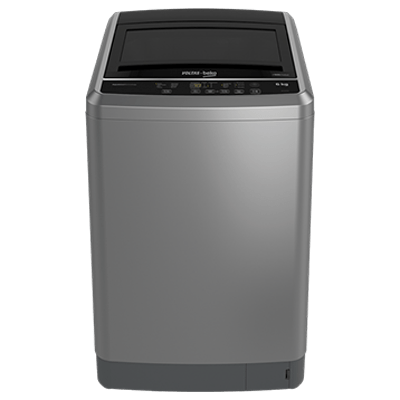
Dishwashers are one of the most convenient appliances in a modern kitchen, helping you save time and water while keeping your dishes sparkling clean. But like any appliance, they need regular care to perform at their best. Without basic upkeep, dishwashers can develop issues ranging from foul odors to poor cleaning results—and ultimately, expensive dishwasher appliance repair.
In this step-by-step guide, we’ll walk you through how to properly maintain your dishwasher so it performs efficiently, lasts longer, and keeps your kitchen running smoothly.
Why Dishwasher Maintenance Matters
Your dishwasher deals with dirty dishes, leftover food particles, grease, soap residue, and hard water minerals every day. Over time, this buildup can clog filters, block spray arms, and even damage internal components.
Regular maintenance offers several key benefits:
-
Improved performance: Dishes come out cleaner and dryer.
-
Energy and water efficiency: A clean system uses fewer resources.
-
Fewer repairs: Preventative care reduces the risk of breakdowns.
-
Extended lifespan: Your appliance lasts years longer with less wear.
-
Better hygiene: Eliminates bacteria and mold buildup in the interior.
By investing just a few minutes a month in upkeep, you can avoid the inconvenience and cost of unexpected dishwasher appliance repair.
Step-by-Step Dishwasher Maintenance Instructions
1: Clean the Filter (Weekly)
Your dishwasher’s filter traps food particles and debris during the wash cycle. If it becomes clogged, water flow is restricted, drainage is poor, and your dishes stay dirty.
How to do it:
-
Remove the bottom dish rack to access the filter (typically located on the floor of the tub).
-
Twist or lift the filter out, depending on your model.
-
Rinse the filter under warm running water.
-
Scrub gently with a soft brush to remove buildup.
-
Reinstall it securely before your next load.
Pro tip: Never run your dishwasher without the filter installed—it protects the pump and internal plumbing from clogs.
2: Check and Clean the Spray Arms (Monthly)
The spray arms rotate and shoot high-pressure water to clean your dishes. Over time, holes in the arms can become clogged with food debris or mineral deposits.
How to do it:
-
Remove the spray arms from the top and bottom of the tub.
-
Rinse them under water and use a toothpick to clear any blockages from the nozzles.
-
Shake gently to dislodge stuck particles.
-
Soak in vinegar for 15–20 minutes to break up hard water scale (optional).
-
Reinstall and ensure they rotate freely.
3: Wipe Down the Door and Gasket (Biweekly)
Grease, soap residue, and food splatter can collect around the door edges and rubber seal (gasket), causing unpleasant odors or leaks.
How to do it:
-
Use a damp microfiber cloth with mild dish soap to clean around the door edges.
-
Pay special attention to the rubber gasket—wipe it carefully and dry it afterward.
-
Check for any signs of mold, tears, or loose areas in the seal.
4: Run a Dishwasher Cleaning Cycle (Monthly)
Even if the interior looks clean, hidden parts of your dishwasher accumulate grime and odor-causing bacteria. A deep cleaning cycle flushes out buildup and keeps your machine smelling fresh.
Option 1: Use a store-bought dishwasher cleaner, following the manufacturer’s instructions.
Option 2 (DIY):
-
Place a dishwasher-safe bowl filled with 1 cup of white vinegar on the top rack.
-
Run the dishwasher on the hottest cycle with no dishes.
-
Optional second step: Sprinkle a handful of baking soda on the bottom and run a short, hot cycle to deodorize and remove stains.
5: Clean the Drain Area (Monthly)
The drain at the bottom of the dishwasher can collect bits of food, paper, and other debris. If it becomes blocked, it may lead to standing water or foul smells.
How to do it:
-
After removing the filter, inspect the drain opening closely.
-
Remove visible debris with gloves or a small brush.
-
Pour a mix of hot water and vinegar down the drain if you suspect buildup.
6: Use the Right Detergent and Rinse Aid
The wrong type of detergent—or using too much—can create excess suds, leave residue, or cause blockages.
Best practices:
-
Only use dishwasher-specific detergent (no dish soap).
-
Follow dosage recommendations based on your water hardness.
-
Keep the rinse aid reservoir filled to help with drying and spot-free glasses.
7: Load Dishes Properly
Poor loading leads to blocked spray arms, poor cleaning, and stress on internal components.
Tips for better loading:
-
Face soiled surfaces toward the center.
-
Avoid overlapping dishes and nesting bowls.
-
Keep tall items away from the spray arms and detergent dispenser.
-
Do not overload—leave room for water to circulate.
Warning Signs That Maintenance Isn’t Enough
Even with regular upkeep, your dishwasher may eventually show signs of mechanical failure. If you notice any of the following, it’s time to schedule dishwasher appliance repair:
-
Persistent water pooling at the bottom
-
Cloudy or dirty dishes after cleaning
-
Unusual noises or vibration during operation
-
Dishwasher not starting or stopping mid-cycle
-
Water leaking from under the door
-
Burnt smells or electrical malfunctions
Early repairs can prevent further damage and extend your dishwasher’s lifespan.
Final Thoughts
Maintaining your dishwasher doesn’t have to be complicated or time-consuming. A few simple monthly steps can go a long way in keeping your appliance efficient, clean, and functional. More importantly, you’ll reduce your need for emergency dishwasher appliance repair, saving money and hassle in the long run.
Make these maintenance tips part of your routine, and enjoy spotless dishes, lower bills, and a longer-lasting appliance.